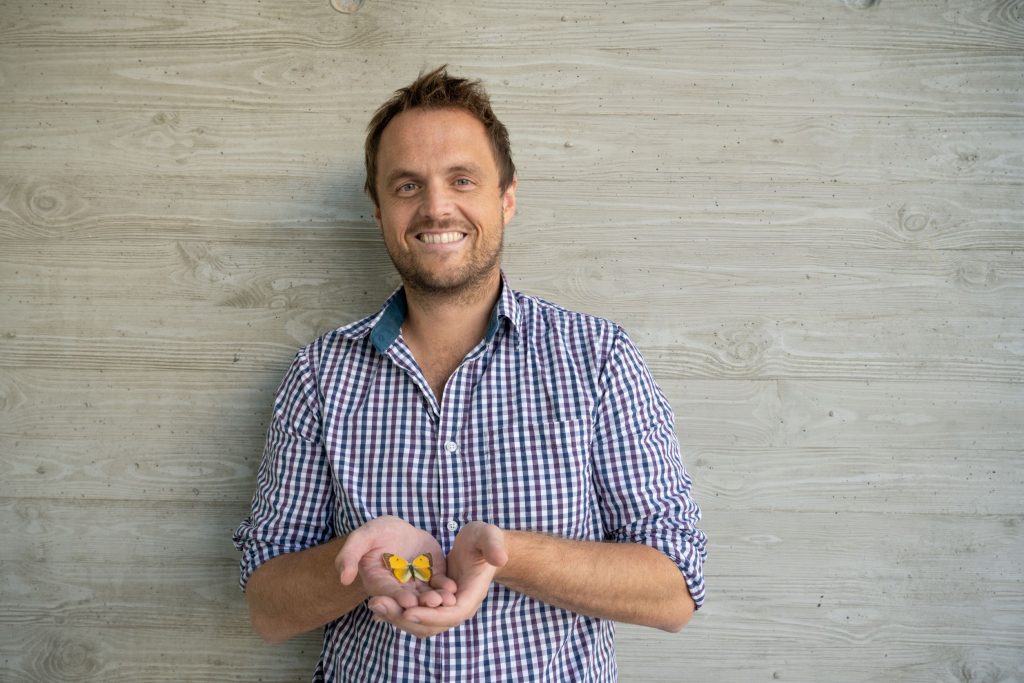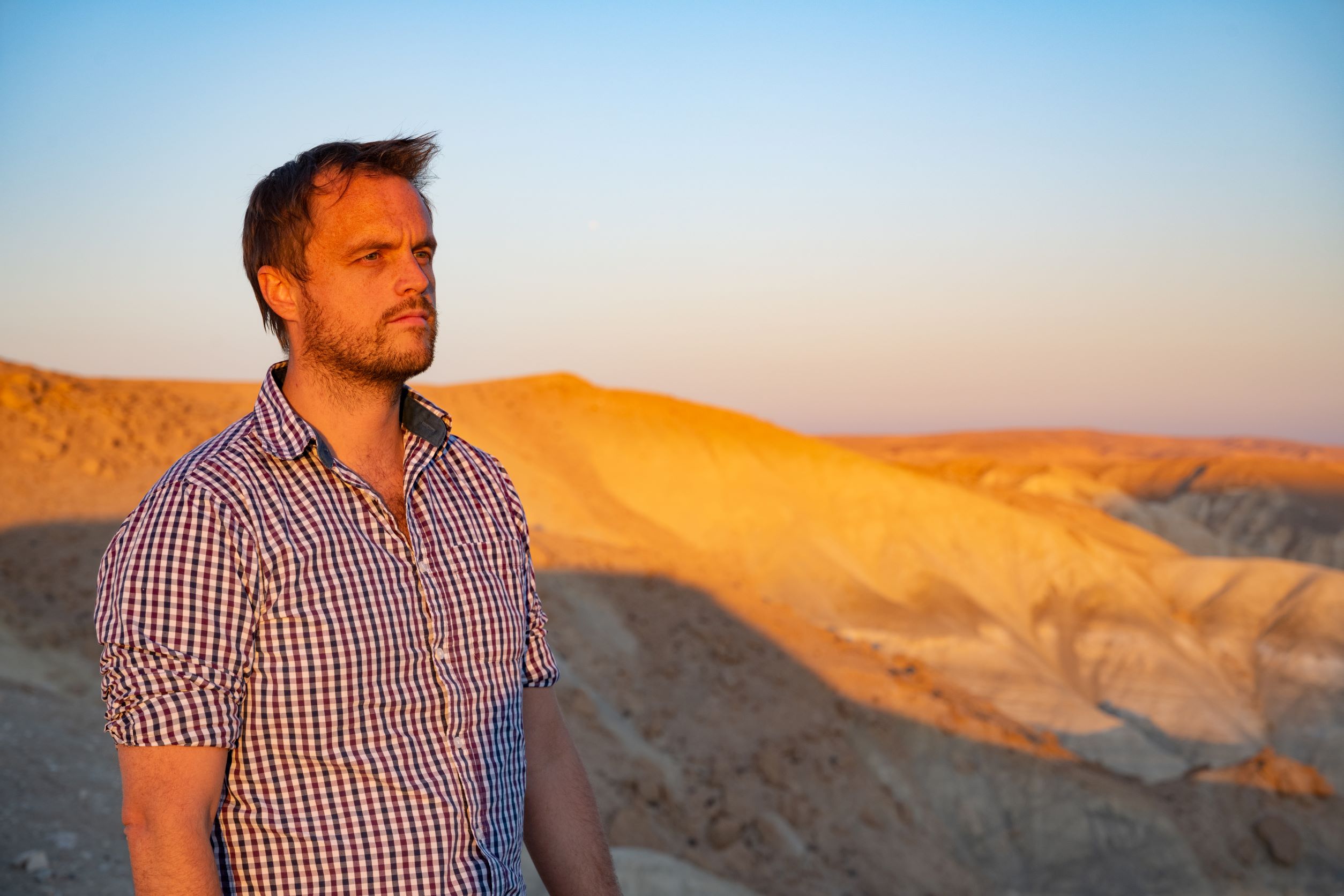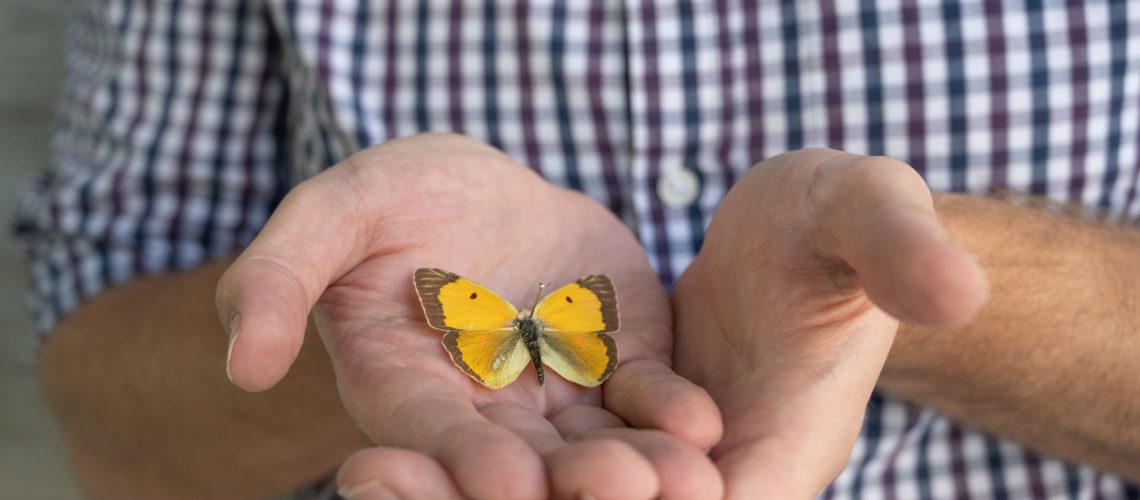Benjamin Palmer’s academic journey is a perfect example of how international postdocs can have successful STEM careers in Israel. Palmer came to Israel from Wales for a postdoctoral fellowship at the Weizmann Institute of Science. He is now in the chemistry department at Ben-Gurion University of the Negev, where his research explores how animals use crystalline materials to manipulate light. This is a subset of the field of biomineralization that could eventually help people develop new optical or electrical materials in a more sophisticated, controlled way. We asked Palmer about why he chose Israel and why he stayed.


Why did you come to Israel for your postdoc?
I came to work with two researchers, Lia Addadi and Steve Weiner, who were doing amazing work in the field of biomineralization — the process organisms use to make hard, mineralized tissues. I was reading their papers while I was doing my PhD in crystallography in the UK and was fascinated to learn that animals also make crystals. I learned more about the Weizmann Institute after I flew to Israel to meet with them, and I decided immediately that I wanted to stay. So I came for a postdoc and never left.Why did your experience in Israel make you want to stay?
In a really good way, Israel is a bit “old school.” Researchers in Israel are given the freedom, time and flexibility to study what they want and follow their dreams. A lot of people I meet in Europe and the UK are jealous of what we can do here. Labs are incredibly well-funded and well-equipped and are able to provide students with many opportunities to travel internationally for conferences and collaborations. The quality of the science is ultimately what attracts people to Israel.
How does this atmosphere inform the process of looking for academic jobs in Israel?
The Israeli academic system is much less rigid than in other countries. In principle, you can apply for a job at any time of year by sending an expression of interest to the relevant department head, sometimes without there being a specific call for applications. There’s an investment in people: if somebody brilliant comes along, they’ll do whatever they can to recruit them and support their infrastructural needs. I don’t think that happens in most countries.How does this contribute to scientific productivity and success?
The freedom to do fundamental science is very present here. There’s less of a focus on output than you’d find elsewhere. Outputs are a by-product of focusing on hard fundamental problems. My research seems entirely esoteric and non-applied but, in the end, it will lead to something. And even if it doesn’t, we’ll learn a lot. In rugby, we use the term “heads up rugby,” which means you don’t play to a plan, you play to what you feel and you go with opportunities as they arise. That’s kind of how we do science here. Plus, the level of resources here is incredible. When I look at my colleagues in the UK, I see how little time they have to do research and how few resources they have. I spend 85 to 90 per cent of my time doing what I want to do.




